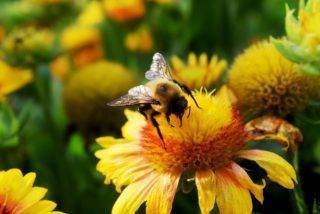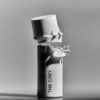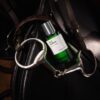Natural ways to approach discomfort are important at this time of year when seasonal allergies are on the rise. Before you reach for over-the-counter medicine, try these safe and effective natural remedies to give you relief.
Effective natural remedies for seasonal allergies
1. Acupuncture
Acupuncture treats a wide variety of health issues, including depression, digestive issues, pain, muscle weakness, and immune deficiency. And, as a study in the European Journal of Allergy and Clinical Immunology reveals, it can help naturally reduce allergy symptoms.
What is acupuncture?
It’s a traditional Chinese medicine practice that originated thousands of years ago. Based on the idea that a blockage or disturbance in the flow of the body’s life energy, or “qi,” can cause health issues. Acupuncturists insert hair-thin needles into specific acupuncture points throughout the body. The aim is to restore this flow of qi. This will in turn balance the body’s energy, stimulate healing, and promote relaxation. There are over 1000 acupuncture points on the body, each lying on an invisible energy channel, or “meridian.” Each meridian is associated with a different organ system.
Researchers believe acupuncture works by stimulating the release of endorphins, the body’s natural pain-relieving chemicals. It also influences the autonomic nervous system which controls bodily functions. This includes the release of chemicals that regulate blood flow and pressure, reduce inflammation, and calm the brain.

2. Apple Cider Vinegar
Apple cider vinegar might just be the best condiment to have in your kitchen. It has many benefits. Made from apple juice, the juice is fermented and this creates apple cider. The cider is host to healthy bacteria, which is what makes apple cider vinegar such a powerful health elixir. It is also an amazing natural allergy remedy. Apple cider vinegar can help reduce mucous production and cleanse your lymphatic system.
Although apple cider vinegar can provide plenty of health benefits, overconsumption can lead to issues such as tooth erosion or throat burn. If you’d rather drink it, be sure to dilute it in water (use a dosage of 1 teaspoon to 2 tablespoons) and remember to never drink it straight.
3.Bee Pollen
Not to be confused with honey, bee pollen is a mixture of flower pollen, nectar, enzymes, honey, wax and bee secretions. Like honey, bee pollen contains the natural substances where the bees live. It offers an alternative way to introduce these substances into your immune system. Bee pollen is great when sprinkled on fruit or tossed in salad as it offers a bit of a sweet crunch.
Why is Bee Pollen important?
Bee pollen is popular among the natural health community because it’s loaded with nutrients, amino acids, vitamins, lipids, and over 250 active substances. Indeed, the Federal Ministry of Health in Germany has recognized bee pollen as a medicine. Many studies have examined the health effects of bee pollen and found promising results for treating seasonal allergies.

4. Boswellia is a natural anti-inflammatory
Boswellia, also known as frankincense, contains many active compounds, like beta-boswellic acid, which can combat inflammation. Boswellia offers relief for allergy sufferers by opening up airways and reducing swelling in the bronchial and nasal passageways. It can also treat conditions like osteoarthritis, rheumatoid arthritis, and inflammatory bowel disease.
5. Butterbur
Butterbur is a shrub that grows in Europe and parts of Asia and North America. Butterbur’s medicinal qualities were recognized back in the Middle Ages. It was used to treat plague and fever. In the 17th century, it was also used to treat cough, asthma, and skin wounds. These days, it is used for urinary tract symptoms, stomach upsets, headaches including migraines, allergic rhinitis (hay fever), and other conditions. You need to proceed with some caution when taking butterbur. The product must be clearly labeled PA free to ensure your safety. Look for butterbur standardized to 8 mg of total petasin, its active ingredient. You should not consume raw, unprocessed butterbur products, such as teas, because they contain harmful substances.

6. Nettle Leaf
Nettle leaf can help naturally block your body’s ability to produce histamine, which can provide allergy relief naturally. The plant has been used most commonly throughout history as a diuretic and for treating painful muscles and joints, eczema, arthritis, gout, and anemia.
How does the Nettle Leaf help with allergies?
Dr. Josh Axe explains says stinging nettle’s anti-inflammatory qualities affect a number of key receptors and enzymes in allergic reactions. This prevents hay fever symptoms if taken when they first appear. The leaves of the plant contain histamine. This, he says, may seem counterproductive to allergy treatment, but there is a history of using histamines to treat severe allergic reactions. Another study from the National College of Naturopathic Medicine reported stinging nettle use for allergy relief was rated higher than placebos in a 98-person, randomized, double-blind study.
If you cannot grow it, then buy capsules or buy the leaf whole. Steep it with peppermint leaves and a small amount of honey to create a tasty herbal tea.
7. Neti Pot and Saline Rinse
Your nasal passage has lots of tiny passageways. For most of us, dirt and pollen can be easily trapped in these passageways. Until that foreign substance is expelled, your body will most likely keep trying to flush it out of your system. This results in a runny nose, coughing, sneezing, and watery eyes.
With a good old BPA free neti-pot, you can use saline to flush your nasal passages and help relieve your allergy symptoms. A neti-pot is a very useful alternative medical device, but you have to ensure it is properly cared for.
How do you choose a neti-pot?
There are so many different types of neti-pots on the market. You should buy one that is strong and hygienic. Stainless steel and ceramic net pots are the most hygienic and easiest to clean. However stainless steel neti-pots may rust over time. This makes ceramic neti –pots a better buy. They are perfect for long term use. However, they can break so they have to be handled carefully. They are also heavier than others so it’s not great to travel with them.
On the other hand, plastic neti-pots don’t break easily are easy to travel with, but they can be harmful to you and of course the environment.
Copper is another option to consider. It’s resilient and hygienic, although copper can react with water which can lead to copper residues.
Take neti-pot hygiene seriously
It’s also important that you follow the instructions that come with the neti-pot or nasal irrigation system. You must also take neti-pot hygiene seriously. The FDA has warned that improper use of neti pots can be dangerous and lead to infections, including the deadly Naegleria fowleri – better known as the “brain-eating” amoeba.
The FDA confirmed that when used and cleaned properly, neti pots are usually safe and effective. The first rule of safety is to only rinse with distilled, sterile or previously boiled water.
Tap water isn’t safe to use as a nasal rinse. Tap water is not filtered or treated enough and may contain low levels of organisms, such as bacteria and amoebas. These organisms may be harmless to swallow because stomach acid kills them, but they can stay alive in nasal passages. This can cause potentially serious infections. In rare cases, these infections can be fatal. So if you use boiled and cooled tap water, make sure it is boiled for three to five minutes then cool until it is lukewarm.
8. Probiotics offer a natural and powerful way to relieve allergies
Never underestimate the power of probiotics. Important for general gut health, probiotics are one of the most important supplements to help relieve allergy symptoms.

How to choose the right probiotics
Choosing the right probiotic is really important and difficult. Vincent M. Pedre, M.D. is a gut health specialist and best-selling author on the subject. He says you should (among others) choose a probiotic starting with 30 to 50 billion CFUs. Probiotics should be taken on an empty stomach once or twice a day for at least three months. He advises looking for a dairy-free probiotic supplement that contains at least 15 billion CFUs each of Lactobacillus and Bifidobacterium strains (a total of 30 billion CFUs) guaranteed by the manufacturer through the expiration date. Don’t skimp on price, as the quality here is very important. You should start low and increase as tolerated. Importantly, don’t wait until your allergies are triggered to take a probiotic supplement.
9. Quercetin may bring natural relief
Quercetin is another powerful natural anti-inflammatory and anti-oxidant. It’s a plant pigment (flavonoid) found in many plants and foods, such as red wine, onions, green tea, apples, berries, Ginkgo biloba, St. John’s wort, American elder, and others. Buckwheat tea also has a large amount of quercetin. You can also take supplements to support your diet if it is deficient. While there is limited scientific evidence to confirm Quercetin’s medicinal powers, this flavonoid appears to be helpful in slowing down the release of histamines in the body. This is why it is able to reduce the symptoms of coughing watery eyes, hives and runny noses.
When you use Quercetin, you must combine it with bromelain
Quercetin should not be overlooked as a natural treatment for seasonal allergies. A report in the Alternative Medicine Review found preliminary evidence that quercetin may slow up the release of histamines. If you opt to try Quercetin, then combine it with bromelain. Bromelain, a mixture of enzymes found naturally in pineapples, is said to increase the intestine’s absorption of quercetin.
Conclusion
These are just some natural ways to beat seasonal allergies. You could also take hot showers if you can bear the heat during the summer. Eating spicy foods can also help if you have the appetite. This may be a little more challenging than some remedies mentioned. You can also improve your allergies with exercise. Try nature’s way. Experiment with what works for you. If you find out what works for you, then be proactive in managing your allergy.





![women [longevity live]](https://longevitylive.com/wp-content/uploads/2020/01/photo-of-women-walking-down-the-street-1116984-100x100.jpg)











2 Comments